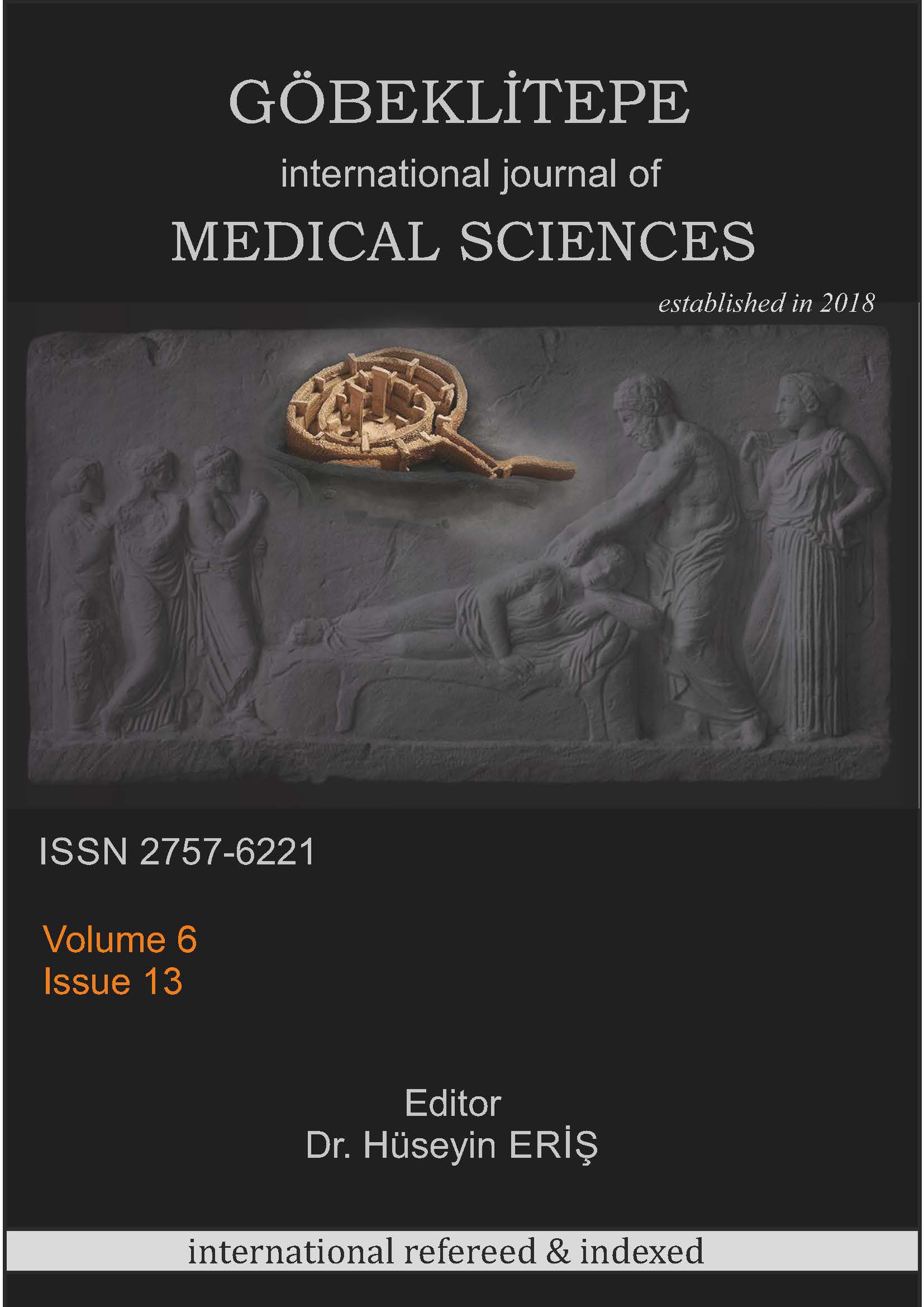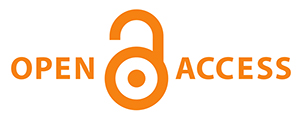THE EFFECT OF PSYCHOLOGICAL RESILIENCE ON ADAPTATION TO OSTOMY IN INDIVIDUALS WITH OSTOMY
DOI:
https://doi.org/10.55433/gsbd.223Keywords:
Ostomy, psychological resilience, Adaptation, NursingAbstract
This research was conducted with a descriptive design to determine the impact of psychological resilience levels on adaptation to ostomy in individuals with ostomies. The sample of the study consisted of 134 patients with ostomy who applied to the General Surgery clinics and polyclinics of a Hospital in Afyon between December 1, 2021, and September 30, 2022. Data were collected using the "Resilience Scale (RS)’’ and "Ostomy Adjustment Scale (OAS)". Data analysis involved the use of Mann Whitney U Test, Kruskal Wallis H Test, correlation, and simple linear regression analyses. Of the participants, 72.4% had a ostomy due to colorectal cancer, and 60.4% had a colostomy. The scores of the OAS differed according to factors such as ostomy type, treatment status (chemotherapy/radiotherapy), preoperative ostomy information, ostomy site marking, and self-ostomy care (p<0.05). There was a positive, strong, and significant relationship between the mean scores of the RS and the OAS. Each unit increase in RS scores was associated with a 0.419 unit increase in OAS scores, and the RS scores explained 91.6% of the variance in the OAS scores (R2=0.916). These findings indicate that the psychological resilience level of individuals with ostomy significantly influences their adaptation to ostomy.
Keywords: Ostomy, Psychological Resilience, Adaptation, Nursing
References
Claessens, I. et al. (2015). The ostomy life study: the everyday challenges faced by people living with a stoma in a snapshot. Gastrointestinal Nursing, 13(5), 18-25.
Eraydın, C. & Sunal, N. (2021). Self-Care ability and affecting factors in patients with stoma. Akdeniz Medical Journal, 7(1),57-64.
Krishnamurty, D.M., Batnik, J., Mutch, M. (2017). Stoma complications. Clinics in Colon and Rectal Surgery, 30(3), 193-200.
Sayar, S. & Vural, F. (2019). Should Support Group Intervention be Implemented for Individuals with Stoma?. Turkish Journal of Colorectal Disease, 29(1),1-5.
Osborne, W. et al. (2022). Prevalence of leakage and its negative impact on quality of life in people living with a stoma in the UK. British Journal of Nursing, 31(16), 24-38.
Zewude, W.C., Derese, T., Suga, Y., Teklewold, B. (2021). Quality of life in patients living with stoma. Etihiop J Health Sci, 31(5), 993-1000.
Silva, K.A. et al. (2020). Time after ostomy surgery and type of treatment are associated with quality of life changes in colorectal cancer patients with colostomy. Plos One, 15(12), 352-361.
Martins, L. et al. (2022). Challenges faced by people with a stoma: peristomal body profile risk factors and leakage. British Journal of Nursing, 31(7), 376-385.
Haviland, J. et al. (2017). Social support following diagnosis and treatment for colorectal cancer and associations with health-related quality of life: results from the UK ColoRectal Wellbeing (CREW) cohort study. Psycho-Oncology, 26(8), 1-9.
Polat, S., Cihan, R. & Akıl, Y. (2022). The relationship between the problems experienced by stoma patients problem- solving skills and depression. Health Care Acad J, 9(2), 157-164.
Shin, J. H., So, H. S. & Kim, E. A. (2017). Influence of post-traumatic stress disorders on quality of life among patients with ostomy: focused on the mediating effect of resilience. Korean Journal of Adult Nursing, 29(6), 657-666.
Çevik, B. et al. (2020). Determining the Adaptation of Individuals with Ostomy to Ostomy and Affecting Factors. Journal of Hacettepe University Faculty of Nursing, 7(2), 186-195.
Zhang, Y. et al. (2019). Relationship between psychosocial adaptation and health-related quality of life of patients with stoma: a descriptive, cross-sectional study. Journal of Clinical Nursing, 28(15), 2880-2888.
Dellafiore, F. et al. (2022). Predictors of adjustment to living with an ostomy: results of a cross-sectional study. Advances in Skin& Wound Care, 35(5), 1-6.
Akıl, Y. & Taylan, S., (2020). Factors affecting adaptation of patients with intestinal stoma: a relational study. Cukurova Medical Journal, 45(2), 428-438.
Göçmen Baykara, Z., Demir, S. & Karadağ, A. (2020). Family functioning, perceived social support and adaptation to a stoma: a descriptive cross-sectional survey. Wound Manag Prev, 66(1), 30-38
Polatcı, S. & Tınaz, Z.D. (2021). The effect of personality traits on psychological resilience. International Journal of Society Researches, 17(36), 2890-2917.
Broeke, G.T., Voorn, G.V., Ligtenberg, A., Molenaar, J. (2017). Resilience through adaptation. Plus One, 12(2), 1-21.
Burch, J., Sica, J., Swash, C. & Williams, I. (2023). Stoma Management. In. White & A. Perrin (Editors), Stoma Care Specialist Nursing: A Guide for Clinical Practice. Springer, pp. 163-193.
Ludolph, P. et al. (2019). Interventions to promote resilience in cancer patients. Deutsches Arzteblatt International, 116, 865-872.
Çakır, H., Küçükakça Çelik, G. & Çirpan, R. (2021). Correlation between social support and psychological resilience levels in patients undergoing colorectal cancer surgery: a descriptive study. Psychol Health Med., 26(7), 899-910.
Mohamed, M.A.E-R., El-Ata, A. B. & Elezaby, H.H. (2022). Relationship between resilience and health-related quality of life among patients with a permanent colostomy. British Journal of Nursing, 31(6), 4-12.
Dong, X. et al. (2017). The mediating role of resilience in the relationship between social support and posttraumatic growth among colorectal cancer survivors with permanent intestinal ostomies: a structural equation model analysis. European Journal of Oncology Nursing, 29, 47-52.
Hwang, J.H. & Yu, C.S. (2019). Depression and resilience in ulcerative colitis and Crohn's disease patients with ostomy. Int Wont J, 16(1), 62-70.
Chou, Y.-J., Wang, Y.-C., Lin, B.-R. & Shun, S.-C. (2023). Resilience process in individuals with colorectal cancer: a qualitative study. Quality of Life Research, 32:681–690
Scardillo , J., Dunn, K. S. & Piscotty, R. (2016). Exploring the relationship between resilience and ostomy adjutment in adults with a permanent ostomy. Journal of Wound Ostomy and Continence Nursing, 43(3), 274-279.
Bunkong, S. et al. (2023). A model of factors influencing health-related quality of life among thais with colorectal cancer and a permanent colostomy. Pacific Rim İnternational Journal of Nursing Research, 27(1),185-199.
Su, X. et al. (2016). Self-efficacy and associated factors in patients with temporary ostomies. Journal of Wound Ostomy and Continence Nursing, 43(6), 623-629.
Gürgan, U. (2006). Resilincy Scale (RS): Scale Development, Reliability and Validity Study. Ankara University Journal of Faculty of Education Sciences, 39(2), 45-74.
Simmons, K. L., Smith, J. A. & Maekawa, A. (2009). Development and psychometric evaluation of the Ostomy Adjustment Inventory-23. Journal Of Wound, Ostomy and Continence Nursing, 36(1), 69-76.
Karadağ, A., Göçmen Baykara, Z., Korkut , H. & Çelik, H. (2011). Adaptation of the ostomy adjustment inventory into Turkish Language. Journal of National Surgery, 27(4), 206-211.
George, D. & Mallery, P. (2019). IBM SPSS statistics 26 step by step: a simple guide and reference. Routledge, 16 Edition, pp. 113-118.
Jayarajah, U. & Samarasekera, D. N. (2017). Psychological adaptation to alteration of body ımage among stoma patients: a descriptive study. Indian J Psychol Med, 39(1), 63-68.
Son, H. & Kang, Y. (2020). Coping processes of patients with ostomies in south Korea: a focus group study. Healthcare, 9(1),21.
Youngmi, K. & Heesook, S. (2019). Age differences in the coping strategies of patients with colorectal cancer. Cancer Nursing, 42(4), 286-294.
Duruk, N., Erek Kazan, E. Ünlüsoy Dinçer, N. (2020). Factors affecting stoma adjustment among the individuals with intestinal stoma: descriptive study. Türkiye Klinikleri Journal of Nursing Sciences, 13(3), 637-648.
Lima, J. A., Muniz, K. C., Salome, G. M. & Ferreia, L. M. (2018). Association of sociodemographic and clinical factors with self-image, self esteem and locus of health control in patients with an intestinal stoma. Journal of coloproctology, 38(1),56-64
Szpilewska, K. Et al. (2018). Acceptance of disease and the quality of life in patients with enteric stoma. Pol Przegl Chir, 90(1),13-17.
Tonks, N. (2023). Body image and sexuality. Stoma Care Specialist Nursing: Clinical Practice Guide, 287-299.
Karadağ, A. et al. (2015). A prospective, multicentered study to assess social adjusment in patients with an intestinal stoma in Turkey. Ostomy Wound Managegement, 61(10),16-29.
Yaşar, Z. & Üstündağ, H. (2021). The determination of self-efficacy and quality of life in patients with stoma. Manisa Celal Bayar University Journal of Institute of Health Sciences, 8(1), 107-115.
Alenizi, A., McGraht, I., Kimpton, A, Liveay, K.,(2021). Quality of life among ostomy patients: a narrative literature review. Journal of Clinical Nursing, 30 (22), 3111-3123.
Santos, R. P., Fava, S. M. & Dazio, E. M. (2019). Self-care of elderly people with ostomy by colorectal cancer. Journal of Coloproctolog, 39, 265-273.
Özçelik, H. & Fadıloğlu, Ç. (2009). Reasons for use of complementary and alternative medicine in cancer patients. Turk Journal of Oncology, 24(1),48-52.
Koç, M. et al. (2022). Effect of prehabilitation on stoma self-care anxiety depression and quality of life in stoma patients: a randomized controlled trial. Diseases of the Colon & Rectum, 1;66(1):138-147.
Ayık, C., Özden, D. & Cenan, D. (2020). Ostomy complications, risk factors and applied nursing care: a retrospective, descriptive study. Wound Management&Prevention, 66(9), 20-30.
Walker, B. (2020). Resilience: what it is and is not. Ecology and Society 25(2):11.
Sakurai, S., Mashimo, A. & Nishikido, N. (2021). Resilience and related factors in the elderly less than 3 years after ostomy. Journal of Japanese Society of Wound, Ostomy and Continence Management, 25(3), 555-565.
Solano, J. P. et al. (2016). Resilience and hope during advanced disease: a pilot study with metastatic colorectal cancer patients. BMC Palliative Care, 15(1),1-8.
Bosnjak, M. et al. (2022). Inflanmatory bowel diseases and resilience. Zdravstveni Glasnik, 8(2), 34-45.
Downloads
Published
Versions
- 2024-07-02 (2)
- 2023-09-19 (1)
How to Cite
Issue
Section
License
Copyright (c) 2023 Göbeklitepe Sağlık Bilimleri Dergisi

This work is licensed under a Creative Commons Attribution 4.0 International License.




